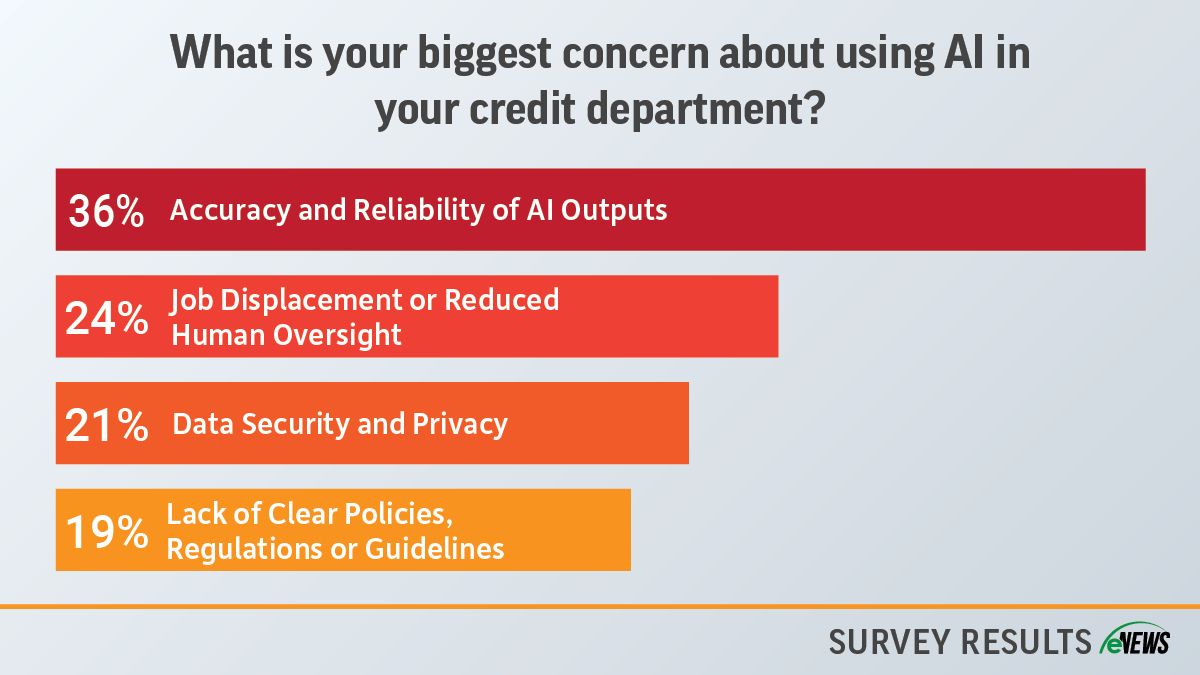eNews, Technology
ChatGPT: Revolutionizing credit industry operations
AI and automation tools, like generative AI chatbots, have transformed business operations. ChatGPT, the AI-driven chatbot developed by OpenAI, is revolutionizing the industry with its user-friendly interface and unprecedented human-like responses.

AI and automation tools, like generative AI chatbots, have transformed business operations. ChatGPT, the AI-driven chatbot developed by OpenAI, is revolutionizing the industry with its user-friendly interface and unprecedented human-like responses.
Why it matters: Understanding the impact of ChatGPT in the credit profession is essential as it can reshape business operations and risk management.
ChatGPT has helped companies streamline processes and enhance workflow, saving time from mundane tasks to focus on crucial company tasks. With its instant information generation, ChatGPT is a valuable tool in business for customer service, workflow automation, optimization and marketing.
By the numbers: Despite ChatGPT’s growing use in business, its integration into the B2B credit industry is notably slower. According to a recent eNews poll, 53% of credit professionals do not leverage ChatGPT at work. Of those who do, most use it to generate responses to customer inquiries (35%).
- While 23% use it to research customer information
- 13% use it to analyze financial data
- Only 10% use it to help with writing and reviewing legal documents
Generating Responses
ChatGPT can assist credit professionals by improving responses to common customer queries and issues, reducing response times and increasing overall customer satisfaction.
For some credit professionals, ChatGPT has significantly improved their efficiency by streamlining communication processes and ensuring consistency in their correspondence.
“ChatGPT assists us in crafting prompts and accurate responses to customer inquiries, enhancing our customer service,” said Joshua Nolan, CCE, senior director of financial operations at PrePass (Phoenix, AZ). “The AI’s ability to understand and generate relevant responses has helped us handle a higher volume of inquiries and tasks effectively.”
Research Customers
ChatGPT can speed up research by summarizing articles, responding to questions and extracting insights from large text data. It’s useful for extracting key information from academic papers and reports.
Credit professionals have leveraged ChatGPT to research customer information in their credit investigation. A process that once took weeks or even months can be shortened to less than a week.
Chantal Rousseau, CCP, corporate credit director at MPG Canada (Brossard, QC), says that her department uses ChatGPT to research customer information such as finding the relation between two entities or the owner of a corporation. “ChatGPT quickly provides the information I need, saving me from sifting through repetitive content on multiple websites,” she said. “Not that I trust 100% of what it gives me, but usually if the information is available somewhere, it’s going to pull it up and then it’s easier to confirm that part than just to find the exact information.”
For Nolan, ChatGPT helps him gather relevant information about customers, enabling better decision-making. “It has a quick response time and the ability to provide accurate information makes it a valuable tool for our team,” he said. “Although we have tested it for solving equations, we do not use it on a regular basis.”
Writing Letters
One of the most efficient aspects of ChatGPT is that it can assist in generating high-quality content. It can provide ideas, drafts and suggestions for improvement when it comes to writing.
Elliott Jenneman, CCE, regional credit manager at McNeilus Steel Inc. (Dodge Center, MN), uses ChatGPT to help write emails, contracts and dunning letters for customers. “I would type up what I want to say and have AI give me some ideas or rewrite it for me,” he said. “I’ll give instructions such as, write more professionally or write in a friendlier tone or proofread this for spell checks. I usually pick and choose from a variety of styles, but I never just copy and paste. I may just pull a line or two or write similarly in my own words because I like what I wrote better.”
Rousseau’s new ERP system includes a functioning credit and collection module, enabling automatic customer reminder letters. “I would type, I need one letter for this timeline with this information, and it would write five letters I needed,” she said. “I adjusted a few aspects to fit our industry better. It’s beneficial for writing professional content without spending too much time.”
Although he isn’t using ChatGPT on an official basis in his department, Martin Smith, CCE, CICP, credit manager at Ash Grove Cement Company (Sumterville, FL), uses it strictly to write letters to his customers. “I input very specific information into ChatGPT, and it’ll take those sentiments and generate a collection letter with a greater impact than what I would typically do.”
Financial Analysis
ChatGPT can simplify data analysis and report generation, making it more accessible across an organization. It’s useful in identifying trends in internal company data.
Jenneman says he’s used ChatGPT to solve equations and financial analysis to detect fictitious data a few times before. “As a trial, I multiplied customer data by some factor to see if I could get the answers I’m looking for,” he said. “But I’ve never used it to research customer information and I’m very hesitant about uploading any kind of customer-related stuff into it at all.”
While ChatGPT is a valuable tool, it may not be suitable for tasks requiring complex analysis or decision-making, Nolan said. “It is important to use human judgment and expertise in conjunction with AI tools to ensure accurate and reliable results.”
Creating an AI Policy
As you can see, ChatGPT, while innovative, has room for improvement. It quickly delivers confident answers but doesn’t disclose its information sources. It also uses web-scraped data to generate its responses and prompts. It could increase the risk of spreading misinformation and promote bias, experts say.
Credit departments that regularly use ChatGPT should consider implementing an AI policy to safeguard against potential risk—or at least add a set of AI regulations to their existing credit policy.
“I think it would be important for businesses to have a policy around AI,” said Eleanor Hartman, CCE, credit manager at Autodesk, Inc. (Portland, OR), who does not use ChatGPT at the workplace. “Chatbots create a self-referential loop, sourcing themselves for more data and answers that can quickly become a cesspool of information. Everyone must exercise caution when navigating AI and ChatGPT, as it has its limitations and may appear capable of certain actions when it is not.”
Having a policy around AI and ChatGPT usage is essential to ensure responsible and ethical use of technology. “This policy should outline guidelines for the appropriate use of ChatGPT, including data privacy and security measures, as well as protocols for verifying information generated by the AI,” Nolan said.
ChatGPT may not suit everyone. “ChatGPT, from an efficiency standpoint, slows things down in my department,” Jenneman said. “If I’m having trouble writing a letter to a customer, it would take more time to write it and work with ChatGPT to find a way to say it better than writing it myself.”
The bottom line: Despite the increasing use of ChatGPT in various industries, the integration into the B2B credit industry is notably slower.





